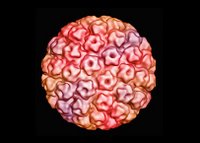Lack of education makes silent HPV virus a real threat

Law Vegas, NV
HPV is sexually transmitted and causes cancer, may be prevented
Even if you think you’re safe, education about human Human Papillomavirus is crucial.
HPV affects both females and males and it is transmitted by any kind of sexual contact.
There are no symptoms associated with this virus, although some types of HPV might result in genital warts. The only way of knowing if someone is infected is by having regular pap smears.
In the past year the UNLV Health Center performed 913 pap smears; out of those, 77 were positive for HPV, which accounts for 8 percent of all the women tested, said Tina Saddler, nurse practitioner and associate director of the Student Health Center.
Abstinence, safe sex, fewer sexual partners and a vaccine are a few ways to prevent HPV, said Annette Magnus, grassroots organizer of one the Planned Parenthood Clinic of Southern Nevada.
There are more than 30 types of the virus, but only four types may lead to cervical cancer in women. Types 6, 11, 16 and 18 are the main worry, but also the only ones that might be prevented by the vaccine Gardasil, Magnus said.
Currently, Gardasil is the only FDA-approved vaccine on the market that may help guard against those types of HPV. It is recommended for females between the ages of nine and 26, she said.
Magnus suggested that men should also take the vaccine as a way to prevent spreading the virus.
“The Gardasil vaccine is one of the most promising new medical advances of our time because it opens a whole new world of prevention and treatment,” said Carol Kobashigawa, clinician for Planned Parenthood of Southern Nevada.
It is believed that the HPV vaccine will reduce HPV exposure and therefore reduce the number of abnormal pap smear results and the follow up tests, Saddler said. It is also believed that it will decrease a woman’s chance of developing cervical cancer, which is most often caused by HPV.
The message is to catch the virus in its early stages so there is no chance of it becoming cervical cancer.
There are more than 20 million people in the U.S. who are infected and an estimated 6.2 million who will get the virus each year. Fortunately, in most people, the body’s defenses are enough to clear HPV, Saddler said.
Kathy Underwood, a nurse practitioner and associate director at the Health Center, said that women should know the center is there to help them and answer any questions they might have.
“It can be very scary, but we can help them sort it through and give them real information,” Underwood said.
Even though in the past few years HPV has been more advertised and talked about, there is still a lot to be learned. Women and men can talk to their health care provider and discuss the best ways to prevent or treat HPV.
Education will always be one of the best tools to prevent viruses like HPV and other STDs.
Labels: Cervical Cancer Awareness, Cervical Cancer Prevention, HPV, HPV Vaccine

0 Comments:
Post a Comment
<< Home